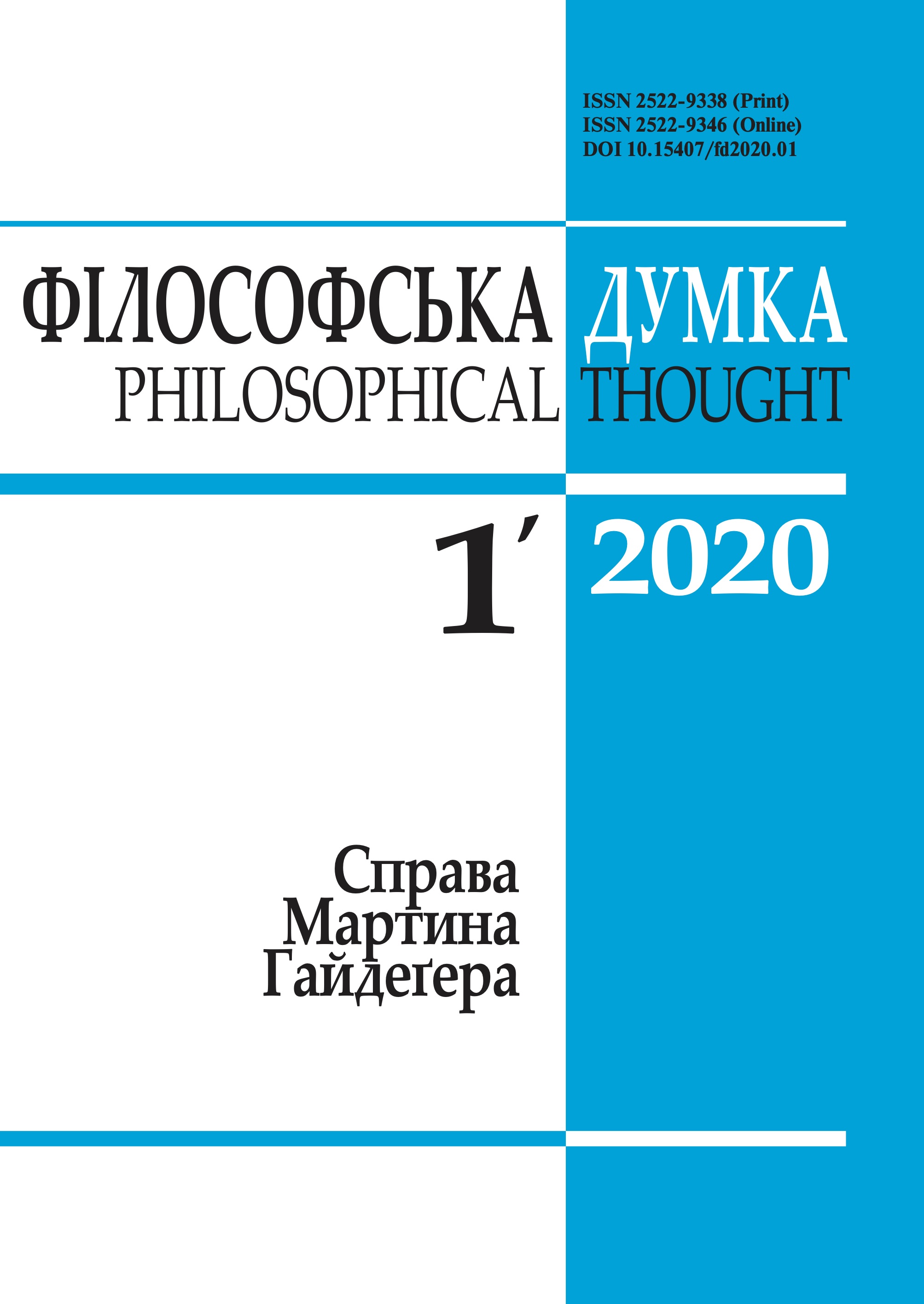Daryna Morozova.The Ukrainian chrysostome. St. Dymytrii Tuptalo and the Antiochian heritage
PHILOSOPHY OF RELIGION
DOI:
https://doi.org/10.15407/fd2020.01.093Keywords:
School of Antioch, Dymytriy Tuptalo, John Chrysostom, Theodoret of Cyrrhus, Diodorus of TarsusAbstract
The article reviews the assessment of the School of Antioch by the first Ukrainian hagiographer, St. Dymytriy Tuptalo. Methods: The comparative-historical methodology and, above all, the Tradition history method reveal not only explicit but also implicit links between Kyivan and Antiochian theology. Conclusions: Interpreting the 4th -5th-centuries theological collisions, Tuptalo consistently clung to the viewpoint of the School of Antioch, rejecting the accusals from the side of Alexandrian tradition. St. Dymytriy systematically reproduces in his Synaxarion the historical narratives of the Antiochians. An unequivocal indicator of Dymytriy’s position is his attitude to Antioch's most controversial figures: in particular, he enlists Theodoret of Cyrrhus among the "holy fathers" and mentions Diodorus of Tarsus among the "Church luminaries", along with other figures of the Meletian party. Such an independent evaluation of the Antiochian heritage is undoubtedly due to the concordance of the theological thinking of Dymytriy with the worldview of the Antiochians.
References
Berndt, M. (1975). Die Predigt Dimitrij Tuptalos. Studien zur ukrainischen und russischen Barock- predigt. Frankfurt.
Bolgarova, M. (2007). Review. Synaxarion by Dymytriy Tuptalo. Vol.1. [In Ukrainian] Dukh i litera, 17/18, 528-531.
Brogi, Giovanna (2017), Plurilinguism and Identity: Rethinking Ukrainian Literature of the Seventeenth Century Ukraine and Europe. In: G. Brogi Bercoff, M. Pavlyshyn, S. Plokhy (Eds), Ukraine and Europe. Cultural Encounters and Negotiations (pp. 45-71). Toronto: Toronto University Press.
https://doi.org/10.3138/9781487512507-004
Derzhavin, A. (1976). Synaxarion of St. Dymytriy, Metropolitan of Rostov, as a church-histori- cal and literary record. [In Russian] Theological works, 15, 61-145.
St. Dymytriy of Rostov (1689-1705). [In Russian] In: Synaxario (Vols. 1-4). Kyiv.
St. Dymytriy of Rostov (1848). Sermon on the 19th Sunday after Pentecost. [In Russian] In: Works (part 2). Moscow.
Krotov, Ya. (2013). Dymytriy of Rostov. [In Russian] Retrieved from: https://web.archive.org/ web/20130323001212/http://krotov.info/yakov/history/18_bio_moi/dimitry_rost.htm.
Krylov, A. (2016). Contacts of St. Dymytriy of Rostov with Kyiv and Chernihiv in 1701-1709. [In Russian] Proceedings of Saint Tikhon's Orthodox University, 5, 116-128.
https://doi.org/10.15382/sturII201672.116-128
Lambrechts, A. (2009). Market of precious pearls of East and West in the homily by St. Dymytriy of Rostov. [In Russian] In: Memory and History: on the crossroads of Cultures (pp. 65-76). Кyiv: Dukh i Litera.
Ohiyenko, I. (1965). Canonization of the Saints in Ukrainian Church. [In Ukrainian] Winnipeg: Nasha kul'tura.
Syroyid, D. (2007). Genre of life in Chetii-Minei by st. Dymytriy (Tuptalo). [In Ukrainian] Dmytro Tuptalo in the Realm of Ukrainian Baroque (pp. 42-49). Lviv: Artos-Apriori.
Syroyid, D. (2017). Tuptalo's redaction of St. Thekla's Life. [In Ukrainian] Ukrainian Literary Studies, 82, 89-97.
Downloads
-
PDF (Українська)
Downloads: 284
Published
How to Cite
Issue
Section
License
Authors who publish with this journal agree to the following terms:
- Authors retain copyright and grant the journal right of first publication.
- Authors are able to enter into separate, additional contractual arrangements for the non-exclusive distribution of the journal's published version of the work (e.g., post it to an institutional repository or publish it in a book), with an acknowledgement of its initial publication in this journal.
- Authors are permitted and encouraged to post their work online (e.g., in institutional repositories or on their website) prior to and during the submission process, as it can lead to productive exchanges, as well as earlier and greater citation of published work (See The Effect of Open Access).


